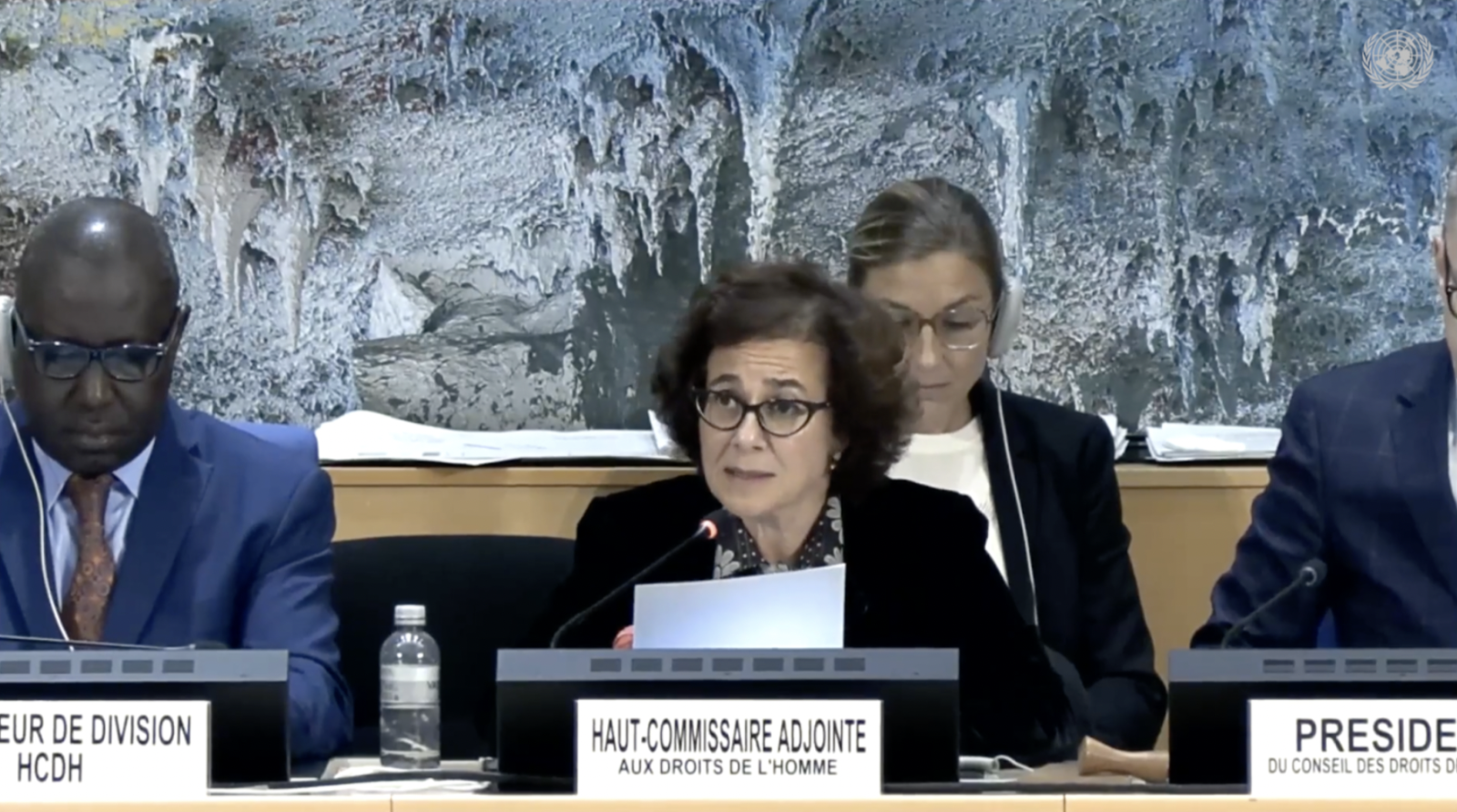
Inaction is complicity: “if you are neutral in situations of injustice you have chosen the side of the oppressor.” - Archbishop Desmond Tutu
The 60th Session of the Human Rights Council
8 September - 8 October
Items 2 & 7 : Presentation of HC report on implementation of HRC res. 31/36
Item 7 General debate
29 September 2025
By Angela Sanchez / GICJ
Executive Summary
On 29 and 30 September, during its 60th session, the Human Rights Council held a general debate under item 2 (Annual report of the UNHCHR and OHCHR and the Secretary General) and item 7 (Human rights situation in Palestine and other occupied Arab territories). The discussion included the relevant annual reports of the United Nations High Commissioner for Human Rights and specifically the reports pertinent to resolution 31/36 l..
The report under item 2 involved considerations on the ongoing violations of business corporations' on the continuation of activities in the occupied Palestinian territory (OPT), including East Jerusalem and the Syrian Golan. The revision adoption of resolution 53/25 from the 14th July 2023, in which the HRC is to ensure yearly updates of all business, is manifest in its latest report on the 60th session. The methods of work and methodology used to discharge the mandate as set out in Council resolution 31/36. The companies involved are those under the criteria of para 96 of the Fact Finding Missions 2013 report of activities, which included a set of companies which had enabled, facilitated and profited from the construction and growth of the settlements.
Background
Resolution 19/17 established the fact-finding mission to investigate the implications of the Israeli Settlements on the Civil, political, economic, social and cultural rights of the Palestinian People throughout the OPT, including East Jerusalem. This committee was composed of three experts appointed by OHCHR: Christine Chanet (Chairperson), Asma Jahangir and Unity Dow.
The mission considered an ‘Israeli Settlement’ to “encompass all physical and non-physical structures and processes that constitute, enable and support the establishment, expansion and maintenance of Israeli residential communities beyond the Green line of 1949 in OPT, including all structures which have been erected, established, expanded and/or appropriated or any land or natural resources appropriated.” The Mission expressed clear, transparent messages of the work it was conducting, and also attempted to conduct a visit of the sites and see the economic and social impact first-hand. However, this was not possible given that the Government did not respond to the request of the fact-finding mission. It expressed that the violations of territory, and creation of settlements are contrary to Article 49 of the Fourth Geneva Convention, which prohibits occupying Powers from transferring parts of their own civilian population into the territory that they occupy. This is customary international law, and as such, binding upon Israel. The obligation of Israel to comply with the treaties and international law frameworks applicable in settlement territories was also reiterated by the ICJ’s advisory opinion.
On the 27th of May 2023, the Human Rights Council established a permanent ongoing commission of inquiry, following its special session on “the Grave Human Rights Situation in the Occupied Palestinian Territory, including East Jerusalem." This commission was given a mandate by virtue of resolution A/HRC/RES/S-30/1to investigate the Occupied Palestinian Territory, including East Jerusalem and and in Israel. The findings, of the ongoing commission of inquiry was set in 2021, resulted in a number of conference room papers, showing the horrible violations of human rights exposed in the sexual violence reports published on the 13th March 2025 ‘more than a human can bear’, the report on the 16th of September 2025 which specifically focused on the conduct of Israel in Gaza and reached the conclusion after it revised 16,000 pieces of evidence that the only reasonable inference that can be drawn is that in fact the Israeli authority and forces are intentionally conducting a Genocide in Gaza.
Summary of the Experts’ Report
The expert report for this session (HRC/60/19), covering items 2 and 7, was published on 26 September to provide the most current information available. It reflects the OHCHR’s work under the mandate of resolution 31/36 (24 March 2016) and updates the database of companies involved in activities identified in paragraph [96] of the 2013 UN Fact-Finding Mission report. Aligned with the Guiding Principles on Business and Human Rights, the report outlines OHCHR’s methodology, including the review of submissions, engagement with stakeholders, and the standards of proof for both inclusion and removal from the database, along with the latest database updates.
First, it explained the methodology, key elements were mentioned with regard to the guidelines followed, which implement the United Nations ‘Protect, Respect and Remedy’ Framework. These are the Guiding principles presented by the special rapporteur on the issue of human rights and transnational corporations, which OHCHR adopted and endorsed in its resolution 17/4 in 2011.
Second, it addressed the Revision of the submissions and reassessed the enterprises listed in 2023. Following its call for inputs, which opened in May 2024, the office received 733, many of which it was not able to revise given the lack of resources and overall liquidity crises. However, there was a priority of 215, which were very much within the 10 listed actions, and especially given the severity of the actual or potential adverse human rights impact of the given sector.
The third item was with regards to engagement with stakeholders, explaining how businesses are firstly approached after a screening and invited to respond to the allegations within a period of 60 days. When the company was involved in more than one activity, it was given an extra period of 60 days. However, whilst some businesses did respond, others declined nonetheless. The OHCHR expressed that it remains engaged in constructive dialogue with member States and businesses. The ultimate aim is to cease activities in cases where there is a severity of actual or potential adverse human rights, and ensure linkages to such corporations are broken. Thus, companies should disengage themselves or engage in dialogue with OHCHR, which may prevent potential adverse human rights impact.
Fourthly, the report addressed the standard of proof for inclusion in the database, which is defined as: “there are reasonable grounds to believe” that a business is engaged in one or more of the activities listed in paragraph [96] of the 2013 Fact-Finding Missions report. The report then outlined the standard for removal from the database, which requires: “reasonable grounds to believe, based on the totality of information reviewed by OHCHR, that the enterprise is no longer involved in the activities that justified its inclusion.”In essence, the report establishes clear criteria both for adding and removing entities, based on a consistent standard of reasonable grounds.
Finally, there was the update of the database, which found that out of the prioritised 215 businesses, 158 were involved in one or more of the activities under para 96, contrary to the Guiding Principles on Business. The OHCHR expressed, nevertheless, in the report that it continues its efforts in exploring the different implications of the companies, to assess what impacts these actions may have on Human rights.
The conclusions and recommendations stressed states' responsibilities to meet their obligations under international law, which include monitoring of human rights violations of business in their territory and or under their jurisdiction. The action needed from states in the case that companies, including those registered under their jurisdiction but conducting business in other territories, need to be effectively penalised, and need to provide effective remedies for those suffering the consequences of their violations.
Summary of the Interactive Dialogue
Opening statement
Following the opening of item 2 of the Agenda, the President of the Human Rights Council Jürg Lauber, gave the floor to the United Nations Deputy High Commissioner for Human Rights, Nada Al-Nashif. She opened her statement by explaining the report's methodology. The 10 listed activities under which companies listed in the database would be involved. This update period is from 2 August 2024 to 20 April 2025. She stressed the importance of the Guiding Principles of Business and Human Rights, which remain the key framework for assessing how companies' activities impact human rights. The OHCHR has ensured full transparency, informed businesses, screened and engaged with business stakeholders. The floor was then opened to the delegations, starting with Israel. Since the Israeli delegation was absent, Mr. Ibrahim Khraishi, the distinguished representative of the State of Palestine, took the floor.
Statement of the Countries Concerned
The delegation of Israel was absent.
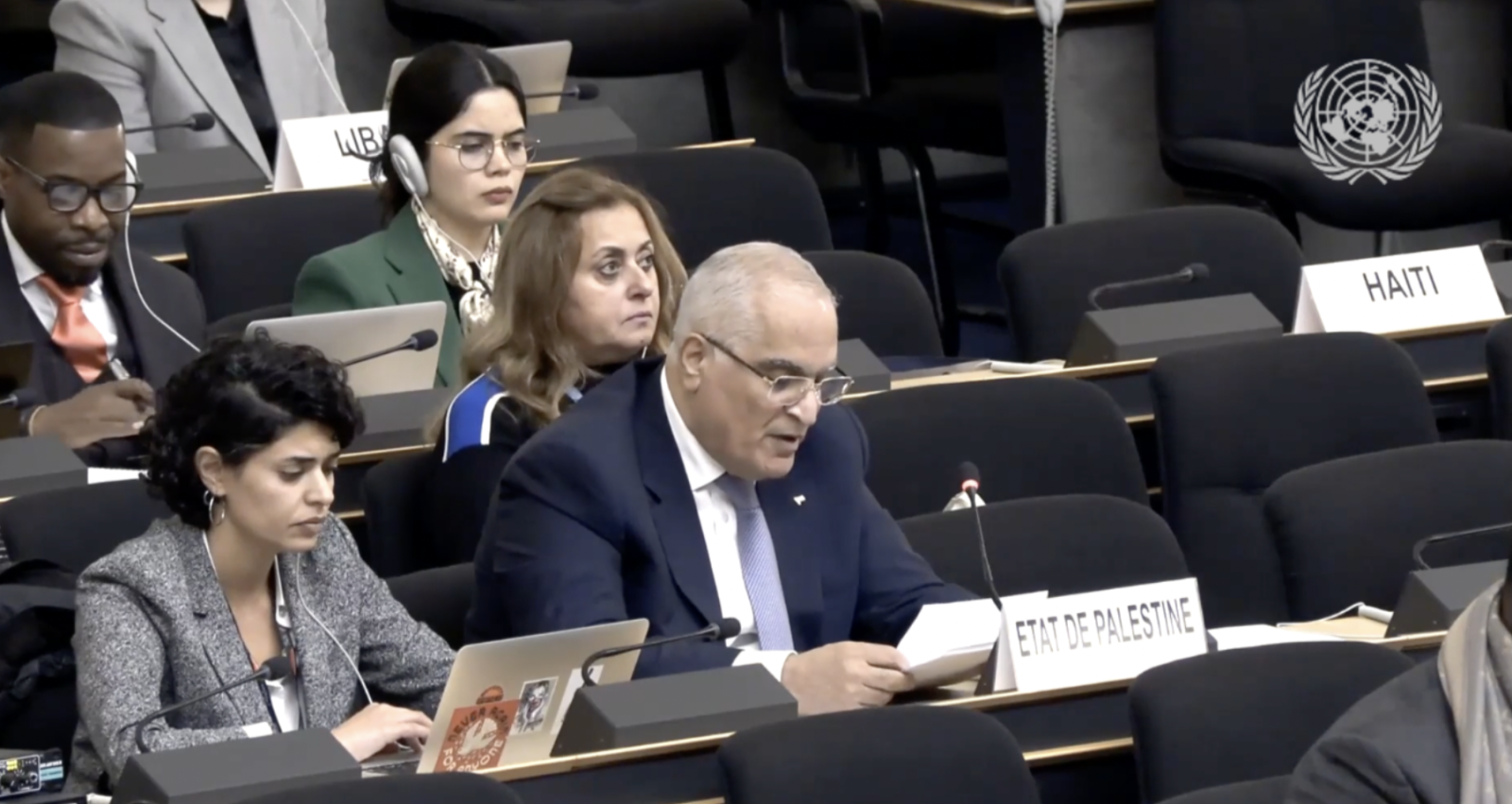
The delegate of the State of Palestine began by thanking the OHCHR for the update of the report of the SR business and interpresises, which contribute directly and indirectly to genocide. He condemned the US sanctions against Francessca Albanese, following her report on the economy of genocide, a collection of over a thousand companies whose involvement is directly and indirectly contributing to the ongoing genocide. Condemning the horrors of 7 October 2025 as crimes against humanity, he reminded the Council that the oppression has been going on for 80 years, and it has reached a point where there is a persistent forced displacement of 4 million people. He further condemned the falsehood of the so-called ‘Gaza humanitarian foundation’, an Israeli manoeuvre to further conduct ethnic cleansing by using starvation as a method of war. He denounced the use of loudspeakers in the Gaza Strip to broadcast Benjamin Netanyahu’s speech at the UN General Assembly, the building of E1, and the continued violations and brutality of illegal settlers against the civilians in their own state. The delegate condemned the stealing and withholding of Palestinian funds, and reaffirmed the importance of the implementation of the New York declaration. He concluded by expressing gratitude to international movements and global solidarity for opposing the genocide and defending Palestinian rights. He urged all countries to recognise the Palestinian State, as he stressed it is the only way to uphold a Two-States solution.
Statement of Other Countries
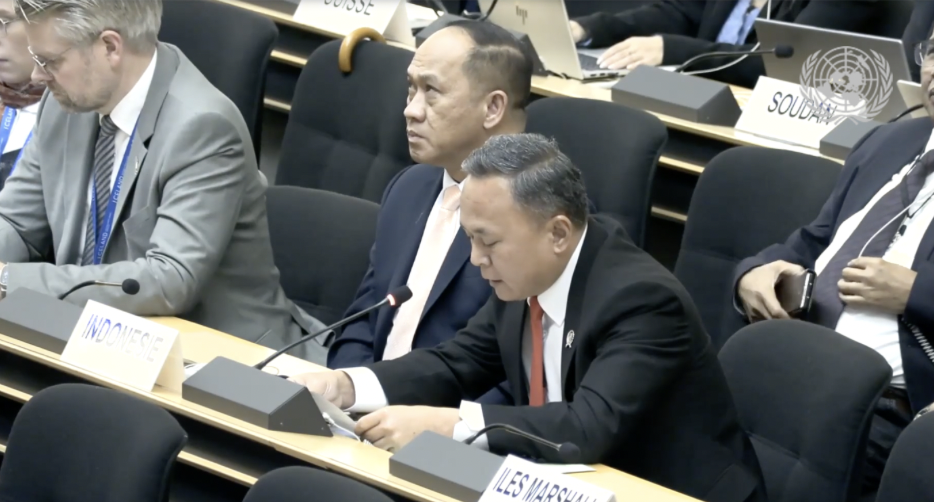
The delegate of Indonesia condemned the ongoing cycle of fear and hatred, emphasising the critical importance of delivering humanitarian aid. He also highlighted the need to protect aid workers, who have been targeted by Israeli armed forces. Ultimately, he stressed that accountability remains essential to breaking this cycle.
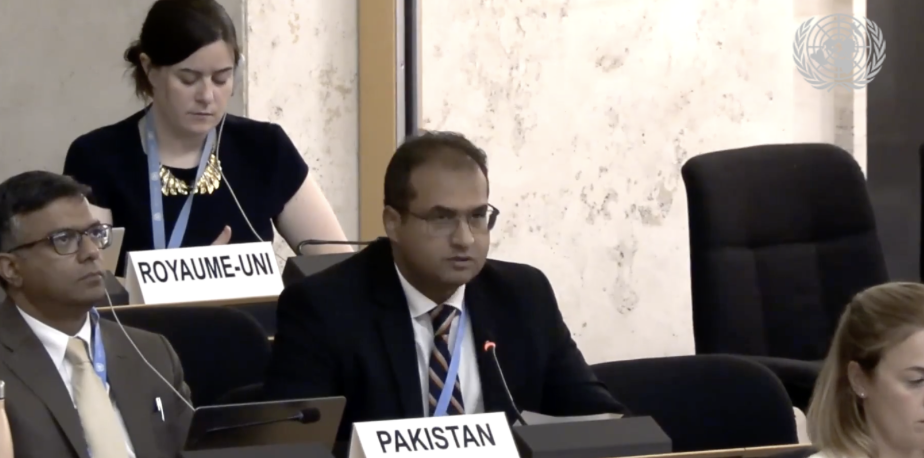
The delegate of Pakistan, speaking on behalf of the Organisation of Islamic Cooperation (OIC), condemned the genocide in the Gaza Strip, the deprivations of food and the use of starvation as a method of war. He mentioned how annexing any part of the OPT is an annihilation of the Palestinians’ inalienable right to self-determination.
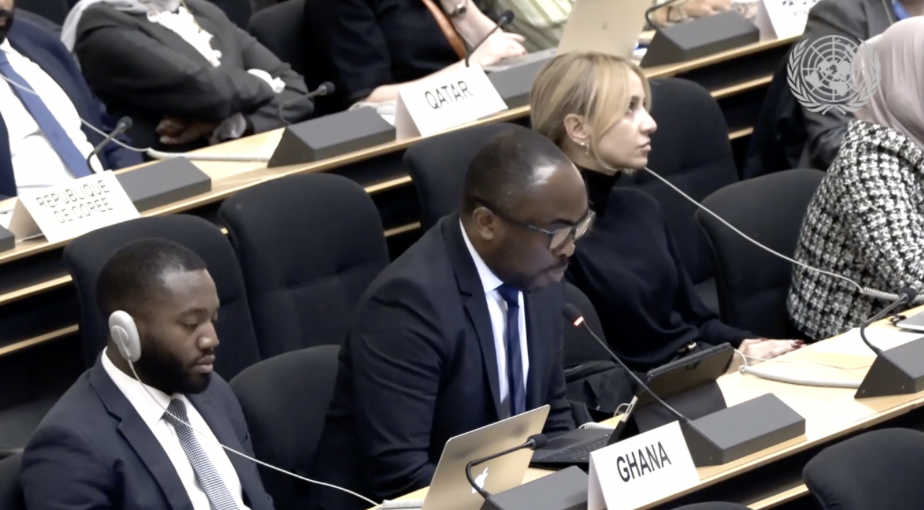
The delegate of Ghana, speaking on behalf of the Group of African States, stated that we cannot normalise cruelty. He expressed how Ghana condemns the actions of the Israeli settlements, grounded in its values of opposing colonialism and apartheid regimes.
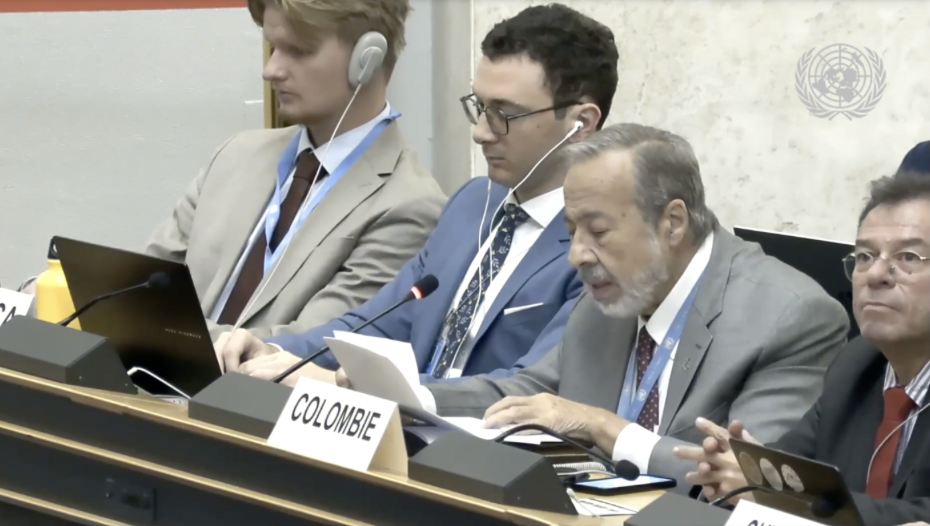
The delegate of Colombia, on behalf of the Hague group of countries, reiterated that all 30 participants of the Hague group committed to not letting their territories be used to transport or transfer weapons used by Israel. This marked a very significant move towards the recommendations of the ICJ’s advisory Opinion, as the countries declared in the Bogota Declaration on 16 July 2025..
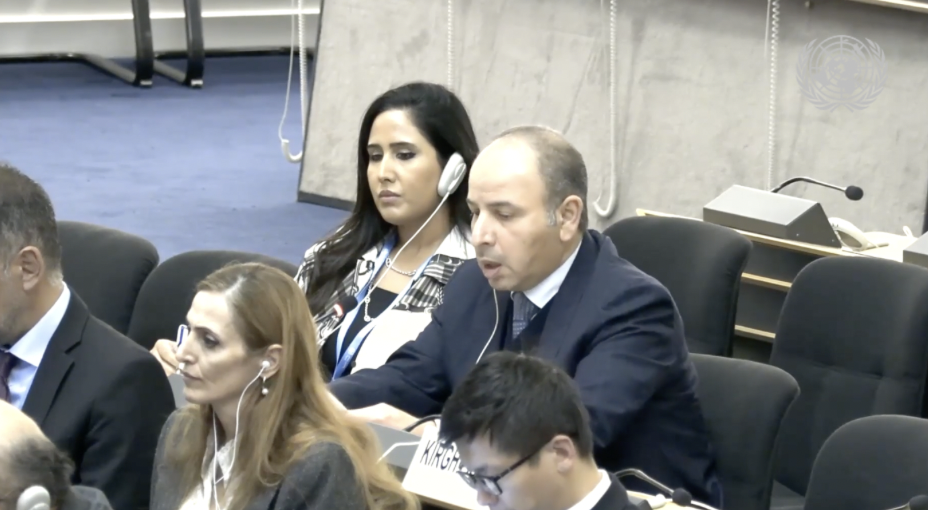
The delegate of Kuwait stated the hypocrisy that is turning a blind eye whilst raising the slogan of respecting international law. He then stressed the momentum in the high-level international conference in which Saudi Arabia and France recognised the State of Palestine.
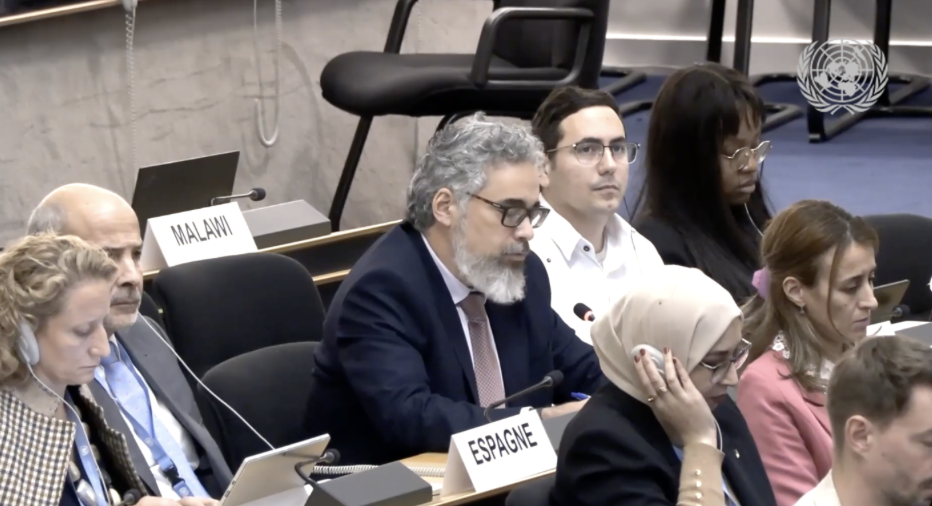
The delegate of Spain stated that, whilst we are here giving speeches, 2 million are being mass murdered. He stressed the need to put an end to selectivity and double speak.. He denounced how supposed NGOs, such as UN Watch, which justifies the actions of the Israeli government, as truly shameful. He emphasised the urgent need to end the ongoing massacre and occupation immediately. Spain condemned the destruction of hospitals, the obstacles hindering the two-state solution, and the persecution of human rights workers. He called on all states to cooperate in enforcing an arms embargo and affirmed that Spain will continue to exert pressure and stand in solidarity with the Palestinian people.
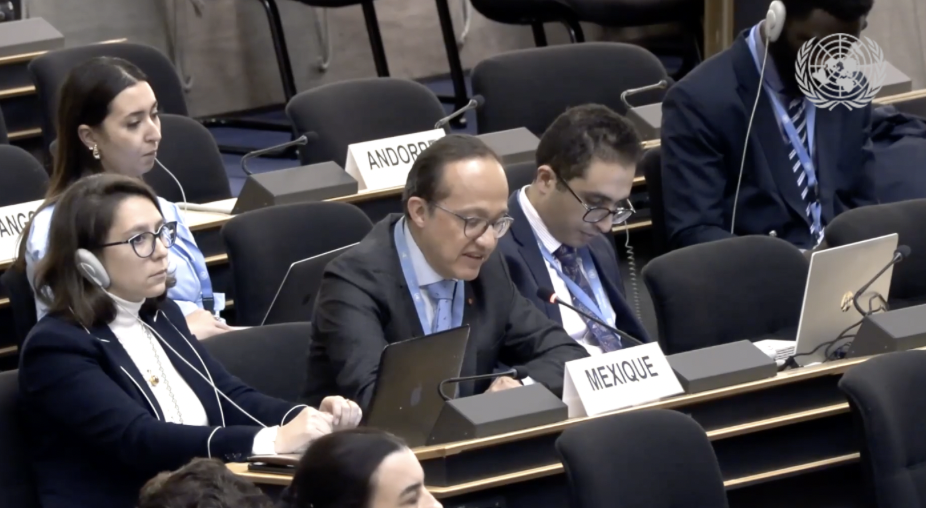
The delegate of Mexico recognised the significance of the mandate of OHCHR, which requires the state to comply with international legal obligations. Mexico stands along with other G20 members in support of the Palestinian people. The delegate stated that respect for human rights is crucial for long-lasting peace.
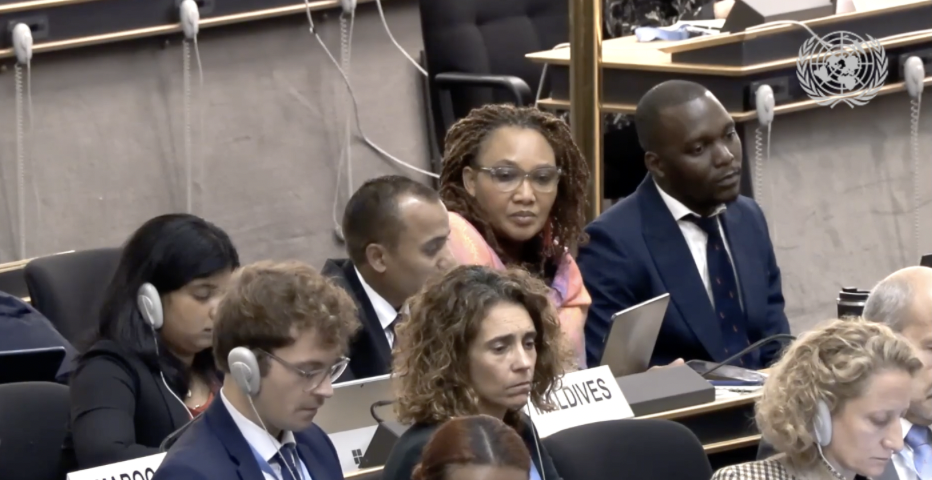
The delegate of the Maldives expressed that “the establishment of an independent sovereign Palestinian State based on pre-1960 borders with East Jerusalem as its Capital is not a gift but a right.” He stressed the need for an arms embargo to stop this genocide, as reported by the Commission of Inquiry, and decisive international action to bring the occupation to an end. The Maldives remain unshaken with the people of Palestine.
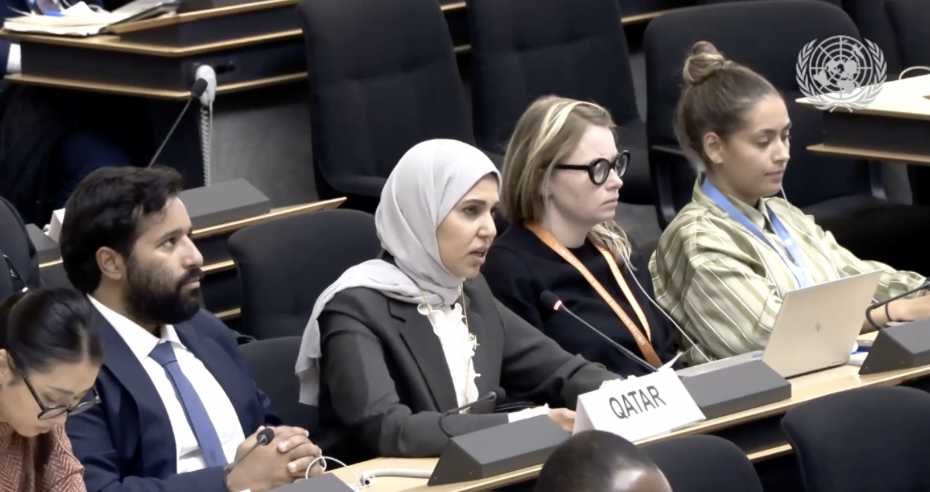
The delegate of Qatar stated that the settlement as part of Israelis ongoing military occupation undermines the prospects of peace in the region. She also denounced the attacks on Qatar by Israel on 9 September 2025, condemned by the International Community. She expressed hope that the international community will fulfil its moral, legal, and ethical responsibility to end the genocide, forced displacement, and starvation; to ensure unrestricted access for humanitarian aid; and to hold all perpetrators accountable, while recognising the State of Palestine.
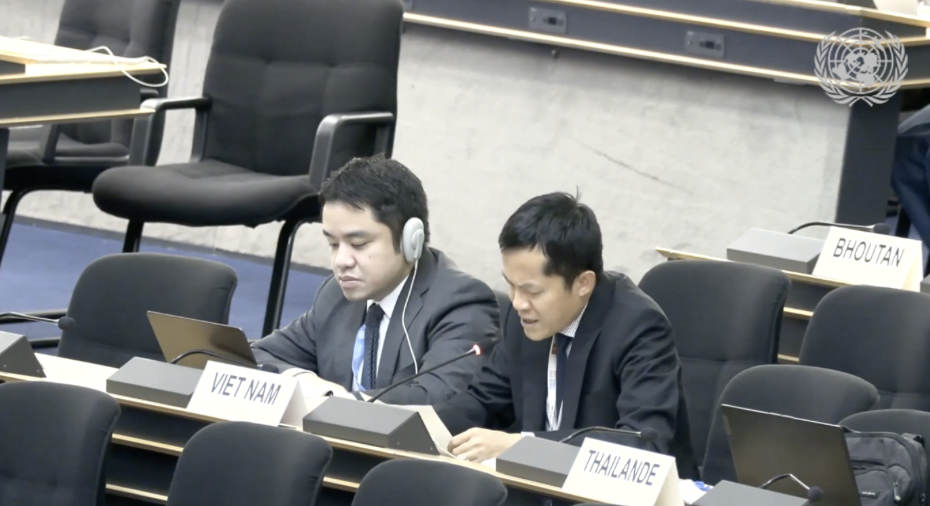
The delegate of Vietnam expressed the country’s readiness to contribute to the international community's efforts to achieve a just and lasting peace. He reminded the Council that Vietnam was one of the first states to recognise the Palestinian State, and continues to support Palestine's permanent membership at the UN.
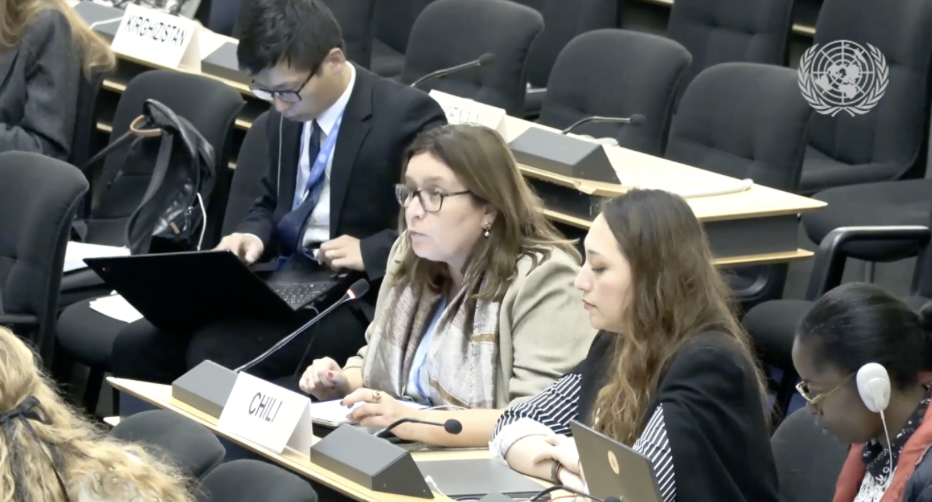
The delegate of Chile reminded the Council that Chile welcomed refugees from Gaza who were compelled to leave their homes because of the imminent threat to their lives. She reiterated that Chile hopes that the recognition Palestinian state will continue, to be able to be given the right to self-determination.
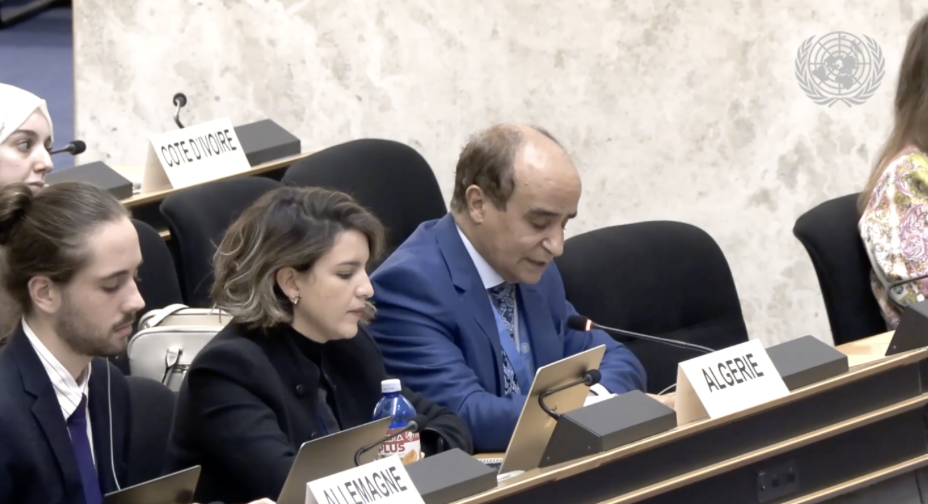
The delegate of Algeria expressed that we do see ourselves here in this council, and the international community is failing, given the inaction in condemning the genocide. Expressed that human rights are meant to be universal, but we find these are relative as well as denied when we speak of the Palestinian people.
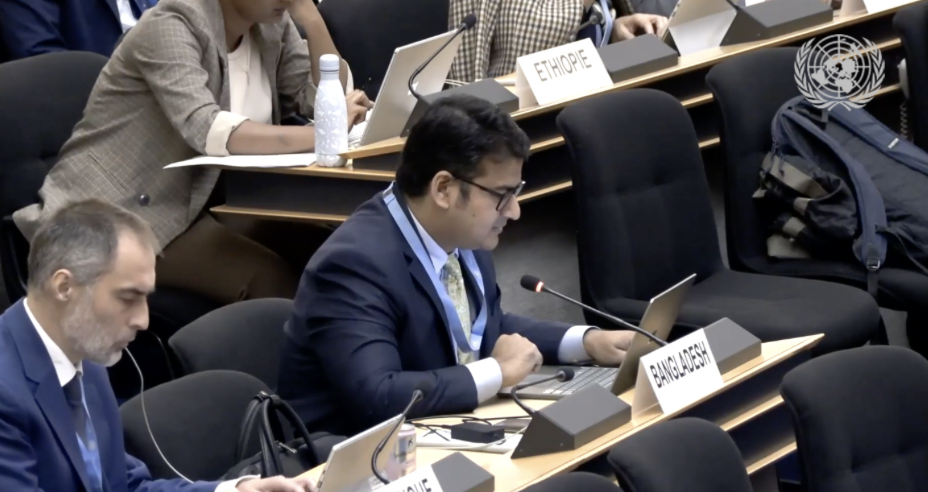
The delegate of Bangladesh expressed that what the world is witnessing today is one of the worst humanitarian crises of our time. He reported that the death toll in Gaza surpasses 66,000, with more than 100,000 severely injured and in dire conditions, and amongst them 18,000 children. He strongly denounced the shield Israel continues to receive from certain states and stressed that the international community cannot remain complicit through inaction and silence
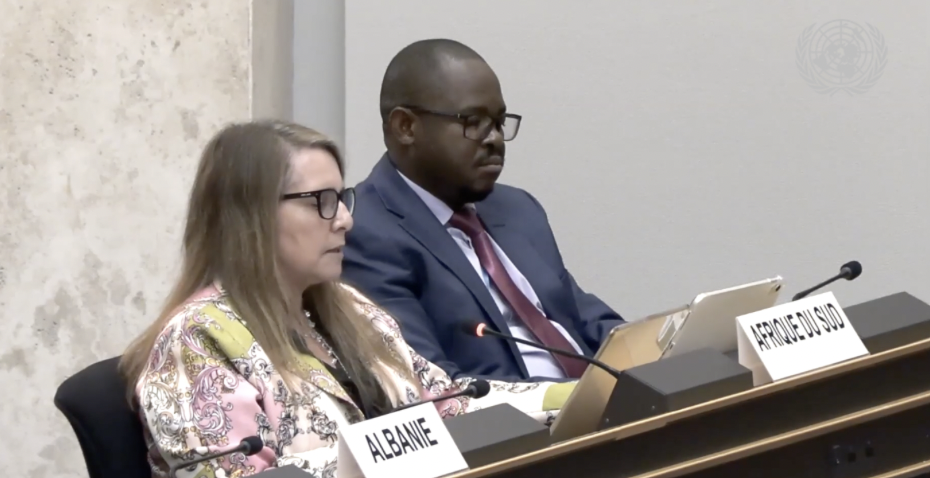
The delegate of South Africa emphasised that, following the findings of the Commission of Inquiry (COI), all states now have a legal duty to take action. She recalled that the International Court of Justice (ICJ) had already put states on notice through its advisory opinion, reinforcing this responsibility. She explained that this initiative is an effort led by the Hague group and urged all states to join South Africa in upholding their obligations under international law.
Furthermore, she highlighted that corporate entities must also be held accountable for their roles and actions. Concluding her statement, she quoted South African Nobel Laureate Desmond Tutu: “If you are neutral in situations of injustice, you have chosen the side of the oppressor.” She affirmed that these words should inspire and guide the international community to stand united in the pursuit of justice.
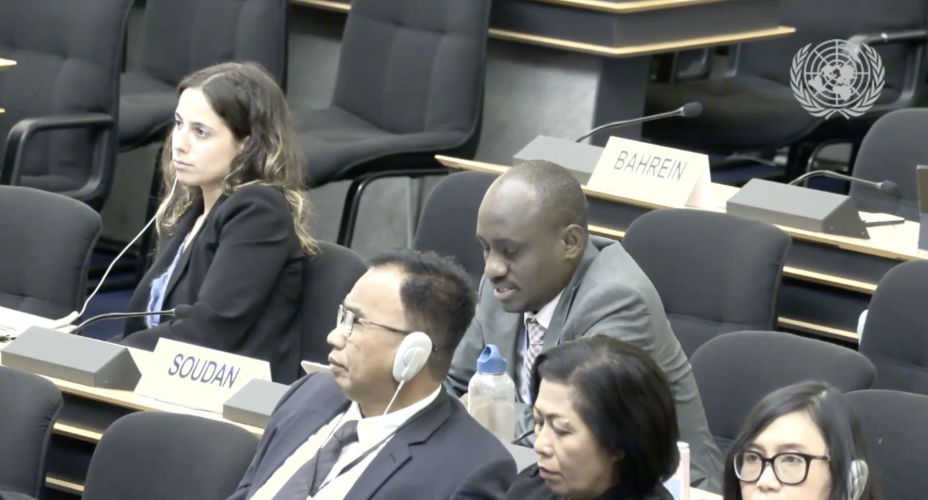
The delegate of Sudan stated that the country stands with the people of Palestine.
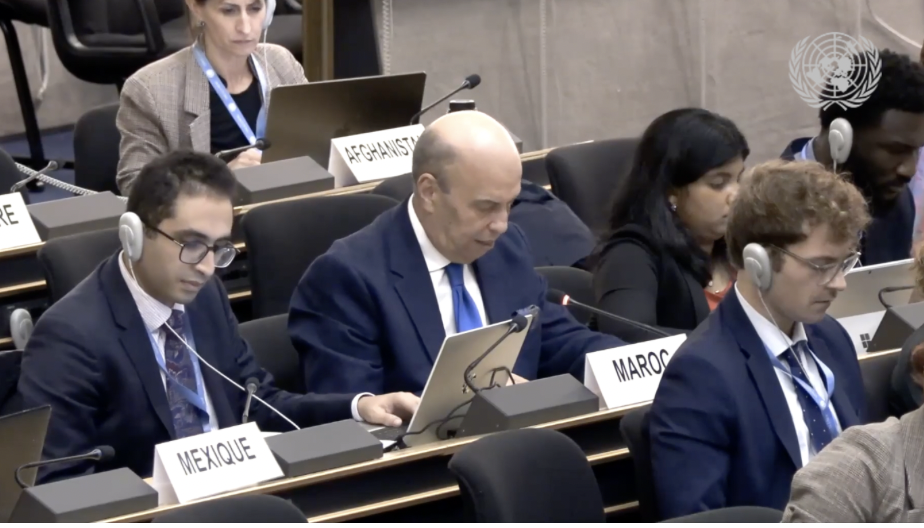
The delegate of Morocco reiterated the central role of UNRWA. He called for urgent intervention to acts of westbank the destruction of houses, and the displacement of civilians and the protection of all these sites, the momentum of the State of Palestine, as well as the Two-state Solution being the only real solution.
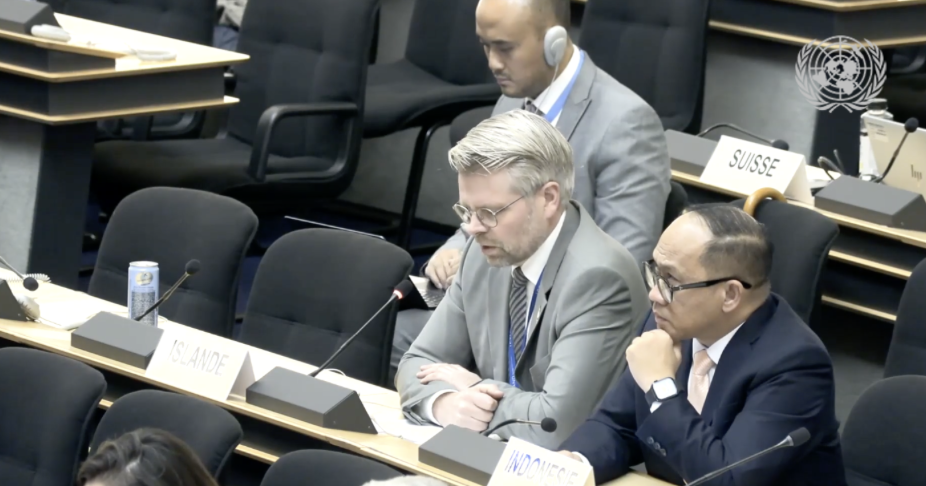
The delegate of Iceland condemned the continuous unjustifiable military operations in Gaza, resulting in the genocide of the Palestinian people in Gaza. Iceland called for an immediate ceasefire in Gaza. Iceland condemned the violations committed by the Israeli forces in the West Bank, as they are responsible under international law for the population in that occupied settlement. The delegate stressed that more focus should be given to the rights of children, he urged that this council cannot advocate human rights and accountability only for some.
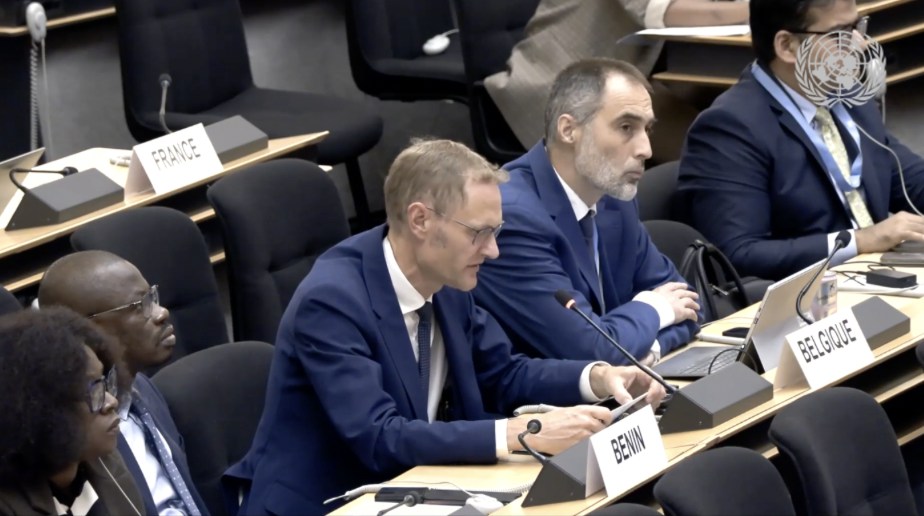
The delegate of Belgium condemned the grave violations committed by Israeli forces in Gaza, as well as the actions of settlers in the West Bank. He highlighted the measures taken by Belgium’s Foreign Minister, including the denunciation of extremist Israeli ministers Itamar Ben Gvir and Bezalel Smotrich as personae non gratae. He further noted that Belgium is actively working toward implementing binding sanctions against Israeli settlers involved in such violations.
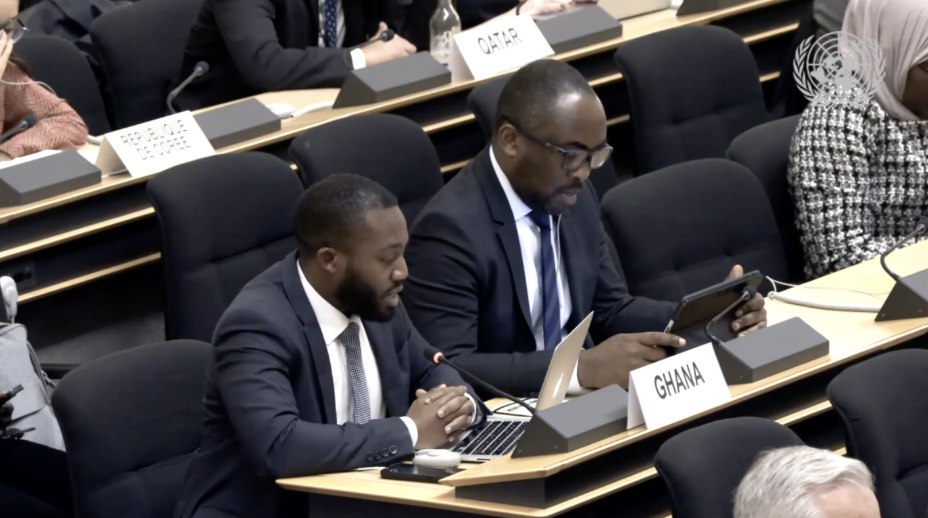
The delegate of Ghana aligned with the statement delivered by the African Group and commended the resilience of the Palestinian people in the face of ongoing violence. Ghana further emphasised the urgent need for accountability and collective action to realise a two-state solution.
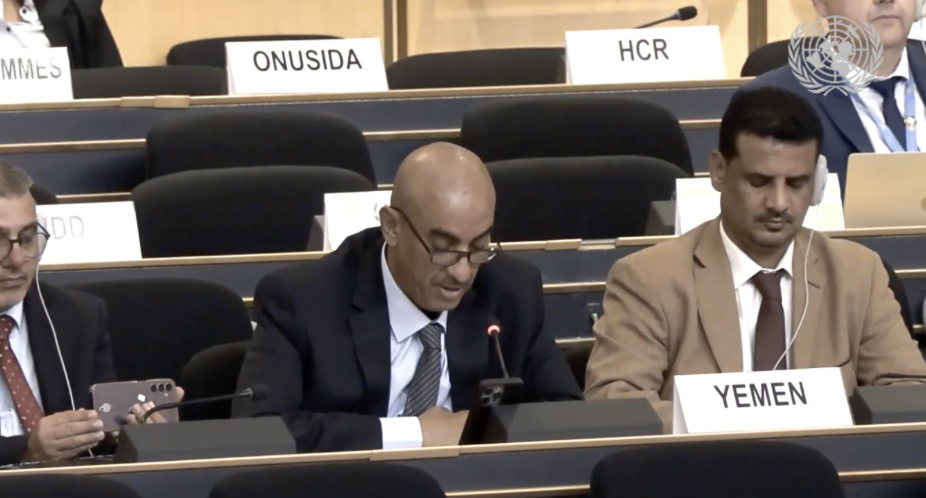
The delegate of Yemen welcomed the outcomes of the conference chaired by Saudi Arabia and France and expressed alignment with the statements of affiliated groups, particularly regarding the rights stemming from 1967. They also praised the objective reports of Special Rapporteur Alabense and urged the international community to take decisive action.
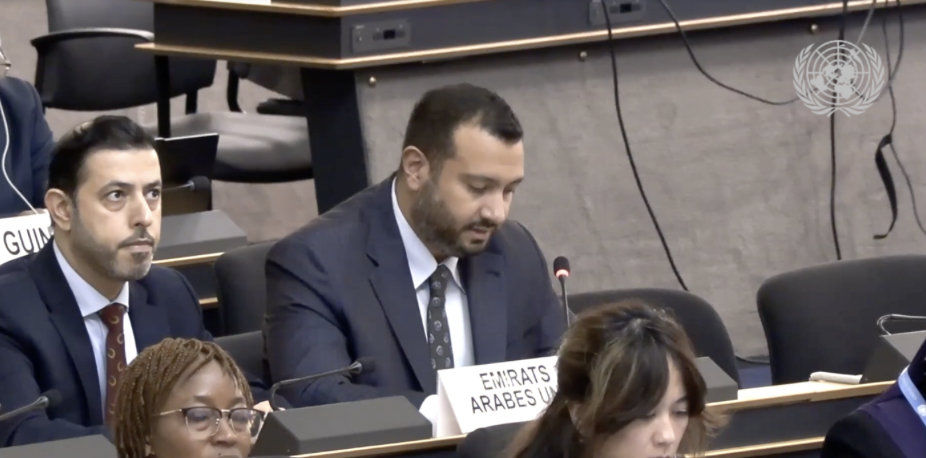
The delegate of the United Arab Emirates stated that Israel’s actions, including the proposed annexation of the West Bank, are unjustifiable. In his address, he urged other states to recognise the State of Palestine. He also referred to the President’s Report, reiterating one of its proposals, though he did not specify which, leaving its interpretation open to the audience.
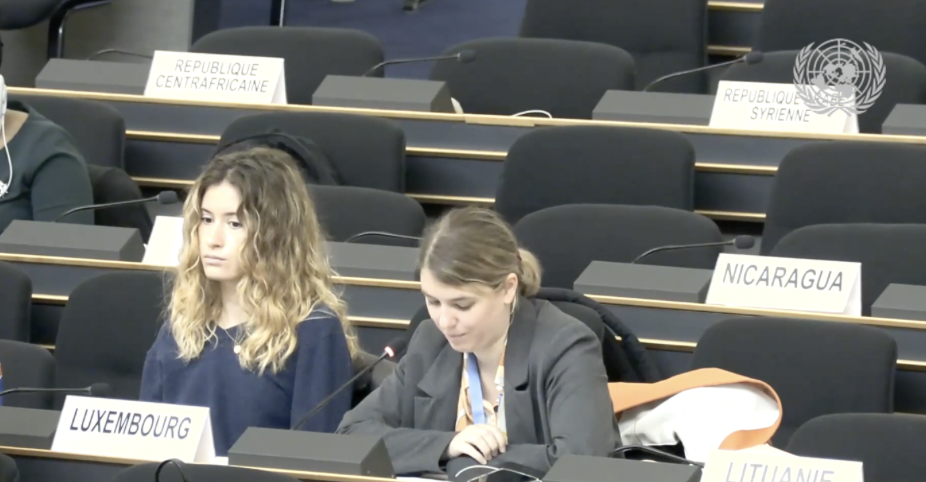
The delegate of Luxembourg stated that Luxembourg will firmly support all other measures that will prompt Israel to respect international law.
Other observer delegations included Malaysia, Ireland, Peru, Türkiye, Djibouti, Slovenia, Eritrea, Egypt, and Sri Lanka. They underscored the urgent need to respond to the famine in Gaza, which has been officially confirmed by the UN and UNRWA. The delegates called for an end to operations in illegal settlements, raised alarm over the devastating impact of the conflict on children, and advocated for Palestine’s recognition as a permanent member of the United Nations. They also urged the Security Council to uphold its responsibility by ensuring the opening of border crossings and taking all necessary measures to achieve an immediate, unconditional, and irreversible ceasefire in Gaza.
Statements of NGOs and Civil Society
Representatives from NGOs and civil society highlighted the universality of the right to life and dignity, warning against the erasure of collective memory and minority voices. The session briefly became tense when UN Watch’s remarks prompted an intervention from the Cuban delegation for breaching decorum, leading the Vice President to remind all participants of the need for respectful and constructive dialogue.
Conclusion
The 60th Session of the Human Rights Council has made one thing undeniably clear: continued inaction in the face of atrocity amounts to complicity. The OHCHR’s updated report under resolution 31/36 reaffirms that numerous business enterprises are still directly or indirectly contributing to Israel’s illegal settlement enterprise, an apparatus sustained by economic interests and entrenched impunity. Despite clear evidence and an established legal framework, enforcement remains absent. The Human Rights Council must move beyond rhetoric. Failure to act not only emboldens violators but also erodes the credibility of international law. The call from states and civil society was consistent: uphold legal obligations, sanction complicit companies, impose an arms embargo, recognise Palestinian statehood, and hold all perpetrators, state and corporations, accountable for the unfolding genocide. Neutrality is no longer an option. As Archbishop Desmond Tutu reminded us, “If you are neutral in situations of injustice, you have chosen the side of the oppressor.”
Position of Geneva International Centre for Justice
Geneva International Centre for Justice (GICJ) reaffirms its full support for the work of the Special Rapporteur on the situation of human rights in the Occupied Palestinian Territory, Ms. Francesca Albanese. We commend her principled and courageous reporting, particularly her efforts to clearly identify all actors, state and non-state, contributing to the ongoing genocide. Her analysis serves as a vital warning of the collapse of international legal norms and highlights the entrenched economic structures that sustain apartheid and systemic violence against the Palestinian people. Encouraging the continuation of the OHCHR's updated report (A/HRC/60/19) on business enterprises involved in activities linked to Israeli settlements, GICJ underscores the urgent need to address the role of corporate complicity in the continuation of these crimes. The updated database reflects the extent to which private sector actors remain embedded in and profit from a system of occupation, colonisation, and dispossession, thereby reinforcing impunity and prolonging Palestinian suffering.
More than a year into this devastating phase of the conflict, GICJ calls on all States to move beyond condemnation and implement concrete legal and political measures. The ongoing failure to act has cost the lives of tens of thousands of Palestinians, including medical workers, journalists, humanitarian staff, and human rights defenders. We urge all States to uphold their international legal obligations, take decisive steps to halt the genocide, ensure corporate accountability, and pursue justice for all perpetratorswhether state, military, or corporate.
References
A/HRC/RES/53/25 Human Rights Council Fifty-third session 19 June–14 July 2023 Agenda item 2 Annual report of the United Nations High Commissioner for Human Rights and reports of the Office of the High Commissioner and the Secretary-General Resolution adopted by the Human Rights Council on 14 July 2023 53/25. Implementation of Human Rights Council resolution 31/36 https://docs.un.org/en/A/HRC/RES/53/25
A/HRC/22/63 B. Terms of Reference, (4) https://docs.un.org/en/A/HRC/22/63
A/HRC/60/19, E. Standard of proof for removal from the database, pg.6
A/HRC/RES/17/4 Human Rights Council Seventeenth session Agenda item 3 Promotion and protection of all human rights, civil political, economic, social and cultural rights, including the right to development Resolution adopted by the Human Rights Council∗ 17/4 Human rights and transnational corporations and other business enterprises https://docs.un.org/en/A/HRC/RES/17/4
Advisory opinion of the International Court of Justice on the Legal Consequences of the Construction of a Wall in the Occupied Palestinian Territory of 9 July 2004 (see A/ES-10/273 and Corr.1), paras.109-113.




